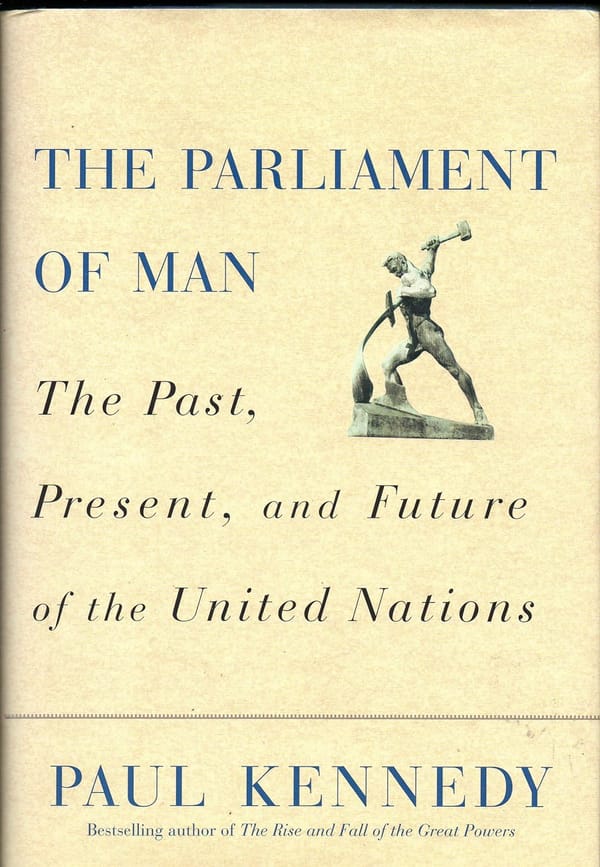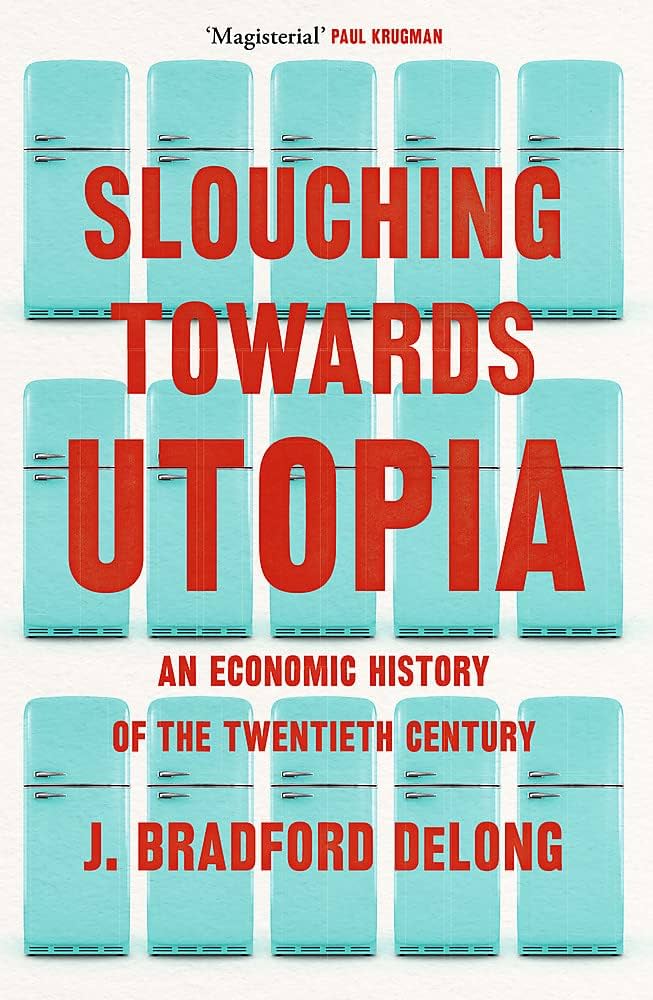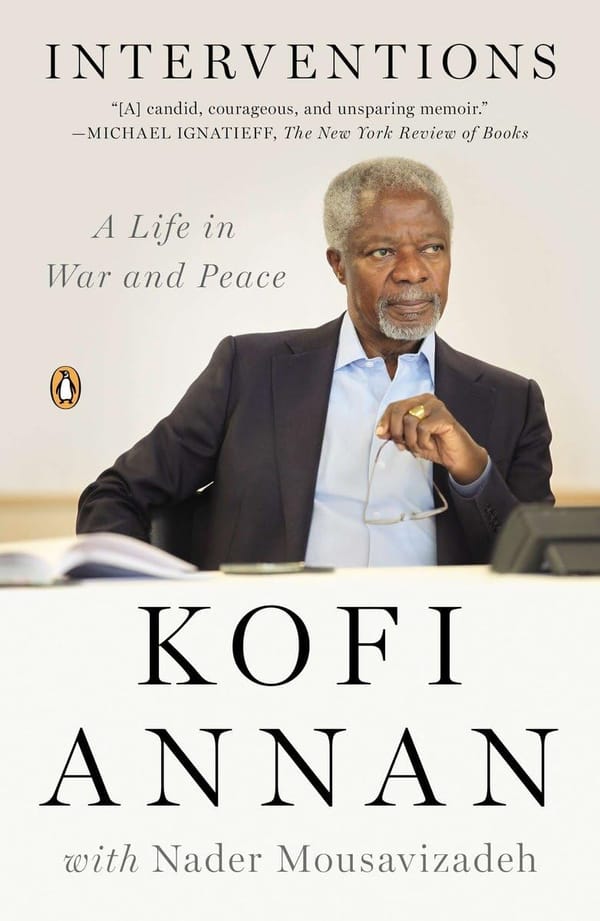By Paul Kennedy (2006)
Pages: 384, Final verdict: Great-read
Paul Kennedy, a British historian and author, is renowned for his work in international relations and economic history. He gained fame with his bestselling book "The Rise and Fall of the Great Powers," which sold over 1 million copies and is considered a classic in the field.
His 2006 book, "The Parliament of Man," delves into the history of the United Nations (UN) and the concept of international organization. Kennedy guides readers through the UN's journey from its founding in San Francisco in 1945 to the early 21st century. The book is divided into three parts:
The book is organized into 3 parts:
- The first part examines the origins of the UN and its relationship with the League of Nations, its unsuccessful predecessor. Kennedy argues that understanding the League's failure and the post-WW2 geopolitical context is crucial to comprehending the UN's formation.
- The second part provides an overview of the UN's operations, including the Security Council, peacekeeping missions, human rights, and economic and social development agencies.
- In the third part, Kennedy presents an extended essay on the state of the UN in 2006 and its future prospects. He believes the UN will remain significant in the 21st century as the only global platform for countries to address worldwide issues.
Kennedy describes the UN as a "mirror of the world" and a "barometer of the world's problems," highlighting its role in reflecting the current global state. Despite being written nearly two decades ago, the major issues he attributes to the UN, particularly since the 1950s, remain unchanged.
A significant challenge is the control exerted by the permanent members of the Security Council (UK, China, Russia, US, France). Their veto power often leads to decision-making gridlocks, a problem persisting since the Cold War.
Regarding the General Assembly, Kennedy critiques its limitations. Its restricted discussion capabilities, especially on security matters, its diminished socio-economic role due to distance from major financial institutions, limited session time, bureaucratic hurdles, and the challenge of representing 191 members render it neither effective nor efficient.
What, finally, can one say about the General Assembly? This is, after all, the closes manifestation we have of the parliament of man, yet its limpness is evident to all. Forbidden (essentially) to discuss and decide about security issues, emasculated in its socioeconomic remit by the distance to the Bretton Woods institutions and the intergovernmental organizations, limited by the amount of time it is in session, cramped by its plethora of committees, paperwork, and formal bureaucratic practices, and weighted down by the need to the representative of its 191 members, this is neither an effective nor a happy prinicipal organ of the UN.
I found the most engaging chapter for Kennedy to be on peacekeeping. He explores the UN's efforts in this area from the 1940s to the early 2000s, highlighting missions in the Middle East, Congo, Cyprus, and the Balkans. He notes the UN's frequent challenges in addressing issues beyond its capabilities, often conflicting with its mission to respect national sovereignty.
Kennedy concludes that UN peacekeeping operations succeed when backed by major power consensus, have a clear and limited mandate, and avoid nation-building tasks.
Bottom line
The Parliament of Man is a solid book about an important institution. I learned a lot about the history of the UN. I especially enjoyed reading about the UN's peacekeeping efforts because I knew very little about.
The narrative is quite dry, and is essentially an exposition of the history and inner workings on the UN. Which is fine, and quite revealing of the most important pan-national organization in the world is like. But it is not a page turner.
I was also [negatively] surprised that the book does not have any numbers, charts, or stats. It is purely a historical account of the UN and the idea of international organization. This is specially surprising given how much good, impactful data there is in the the UNSD (The United Nations Statistics Division).
I recommend The Parliament of Man to anyone who is interested in international relations and the history of the United Nations.
Learn more
- Buy the book
- Read the United Nations charter



